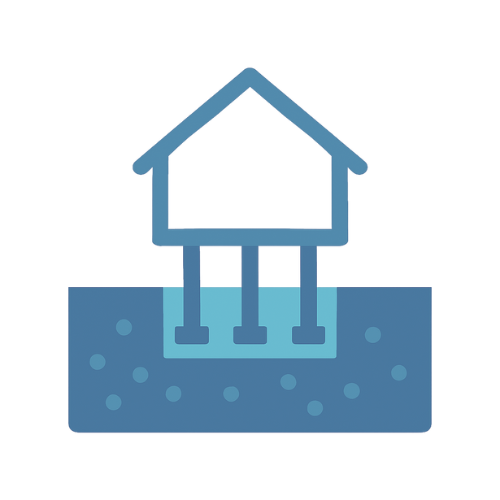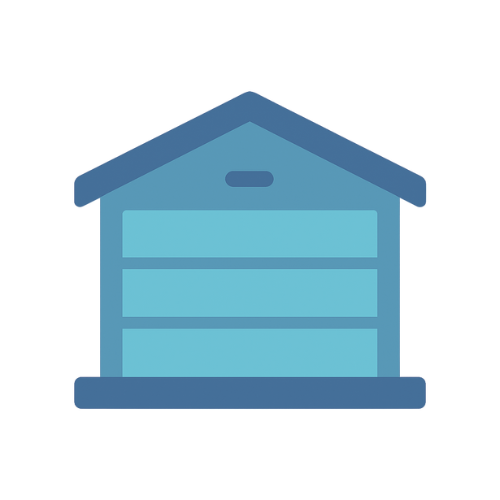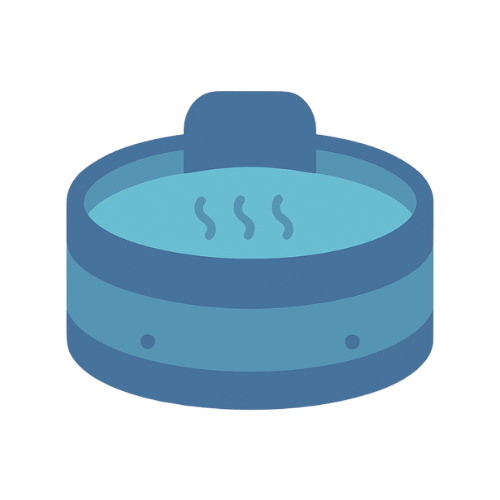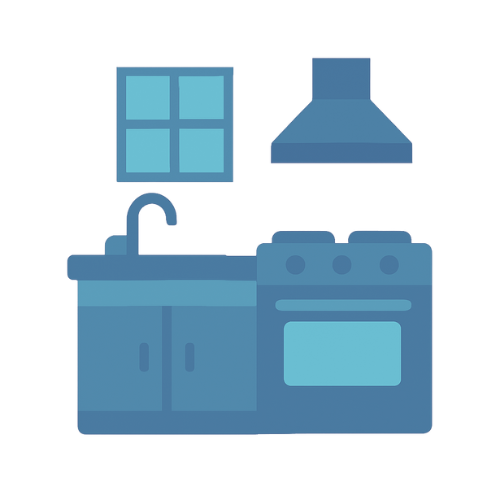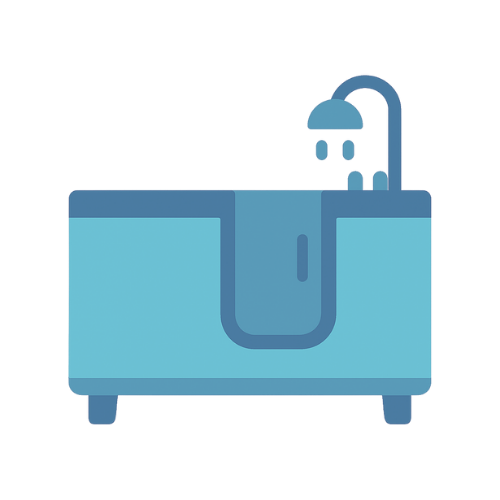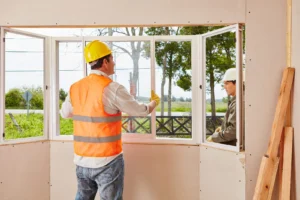Understanding HVAC: What It Does and Why It Matters
When you walk into a warm home on a freezing day—or feel a cool breeze from a vent during a summer scorcher—you’re experiencing the quiet work of your HVAC system. HVAC stands for Heating, Ventilation, and Air Conditioning, and it’s one of the most essential systems in your home.
At its core, HVAC is all about comfort and air quality. It regulates temperature, manages airflow, and helps filter out dust, allergens, and humidity. Whether you’re living in a cozy cottage or a large family home, a well-functioning HVAC system keeps your indoor environment safe, stable, and comfortable—no matter the season.
🔥 Heating
In the colder months, your HVAC system’s heating component—like a furnace or heat pump—kicks in to raise the temperature. It pulls in air, warms it (usually with gas, electricity, or oil), and then circulates that heat throughout your home via ductwork or radiators.
❄️ Cooling
During the summer, the air conditioning side of the system does the opposite. It removes heat and humidity from the air and releases cool, dry air into your living space. Most systems rely on refrigerant and compressors to pull heat from indoors and expel it outside.
💨 Ventilation
Ventilation is the often-overlooked hero of HVAC. It controls air movement, refreshes stale indoor air, and prevents moisture buildup that can lead to mold or health issues. Good ventilation also ensures even distribution of heated or cooled air throughout your home.
🌬️ Air Quality
Modern HVAC systems also help filter and purify the air. Built-in filters trap dust, pet dander, and pollen, while advanced add-ons like UV lights or HEPA filters take it a step further by neutralizing bacteria and allergens.
🛠️ Why It All Matters
Without HVAC, we’re at the mercy of outdoor conditions—and so is our health. A well-maintained HVAC system isn’t just about comfort. It helps:
- Protect your home from mold, condensation, and extreme temperatures.
- Support better breathing by reducing airborne irritants.
- Improve energy efficiency and lower your utility bills.
- Extend the life of your appliances, furniture, and even electronics, all of which benefit from stable humidity and temperature.
In short, HVAC is more than just hot or cold air—it’s the invisible infrastructure that keeps your home livable, breathable, and enjoyable. Understanding how it works is the first step to making smart choices when it comes to maintenance, upgrades, or replacements.
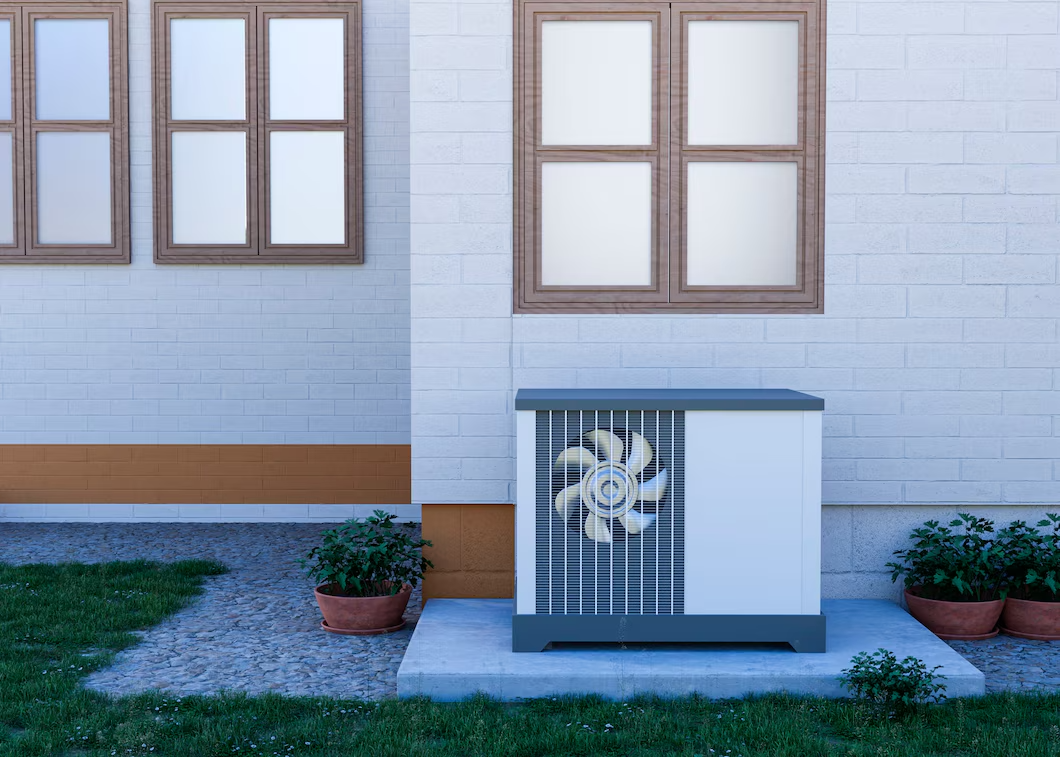
From Indoors to Outdoors: Key Parts of an HVAC System Explained
Indoor Components
Furnace
The furnace creates heat using gas, oil, or electricity, then pushes warm air through your home via ductwork.
Thermostat
This is your system's brain. It tells the HVAC when to turn on and off based on the temperature you set. Smart versions can learn your habits and save energy.
Air Handler & Blower
These move air across the heating or cooling elements and distribute it through the ducts.
Evaporator Coil
Found near the air handler, this coil cools the air by absorbing heat as it passes through.
Ductwork & Filters
Ducts carry air to and from your rooms, while filters remove dust and allergens to keep the air clean and system efficient.
Outdoor Components
- On hot days: indoor air is cooled by the evaporator, heat is expelled outside via the condenser, and cool air is pushed back inside.
- On cold days: the furnace heats the air and sends it through the ducts.
Throughout, your thermostat coordinates the system, your filters clean the air, and your ductwork delivers it.
How It All Works Together
Knowing the basics of your HVAC system helps you catch problems early, speak confidently with a technician, and make smarter decisions about maintenance or upgrades. Each part matters—and when they work together, your home stays comfortable, efficient, and healthy.
Frequently Asked Questions
How often should I service my HVAC system? +
How long does an HVAC system typically last? +
What Are the Different Types of HVAC Systems?
There are four primary types of HVAC systems:
- Heating and Cooling Split Systems: These systems feature two separate units—one for heating and one for cooling. They are the most commonly used HVAC systems.
- Mini-Split Ductless Systems: Also known as mini-split systems, these are an excellent choice for homes without existing ductwork.
- Packaged Heating and Air Conditioning Systems: These all-in-one units combine both heating and cooling functions, making them ideal for homes with limited space.
- Geothermal Systems: Geothermal HVAC systems use the Earth’s consistent temperature to heat and cool your home. While they are the most energy-efficient option, they come with higher installation costs.
Your HVAC contractor will help determine the best system for your home based on its size, local climate, and your budget. After assessing your heating and cooling needs, they will recommend the most suitable combination of HVAC units for your situation.
| Cooling Units: | Heating Units: | System Category: |
|---|---|---|
| Air Handler | Heat Pump | Split |
| Central Air Conditioner | Electric Furnace | Split |
| Central Air Conditioner | Gas Furnace | Split |
| Central Air Conditioner | Oil Furnace | Split |
| Central Air Conditoner | Boiler & Radiant Heat | Split |
| Heat Pump | Gas / Oil Furnace | Split |
| Mini Split Heat Pump | *All in One | Heating & Cooling |
| Geothermal Heat Pumps | *All in One | Heating & Cooling |
Frequently Asked Questions
How Do I Choose the Right HVAC System for My Home? +
Home Size: It's essential to choose an HVAC system that is appropriately sized for your home. A system that's too small won’t effectively heat or cool your space, while one that’s too large will be inefficient.
Local Climate: If you live in a colder area, you’ll need an HVAC system that excels in heating. On the other hand, warmer climates require a system that focuses more on cooling.
Budget: HVAC systems can vary greatly in cost, from a few thousand to tens of thousands of dollars. It’s crucial to select a system that fits your financial plan.
I Live in a Warm Climate. What Are the Most Cost-Effective HVAC Systems for Heating and Cooling? +
What size HVAC system does my home need? +
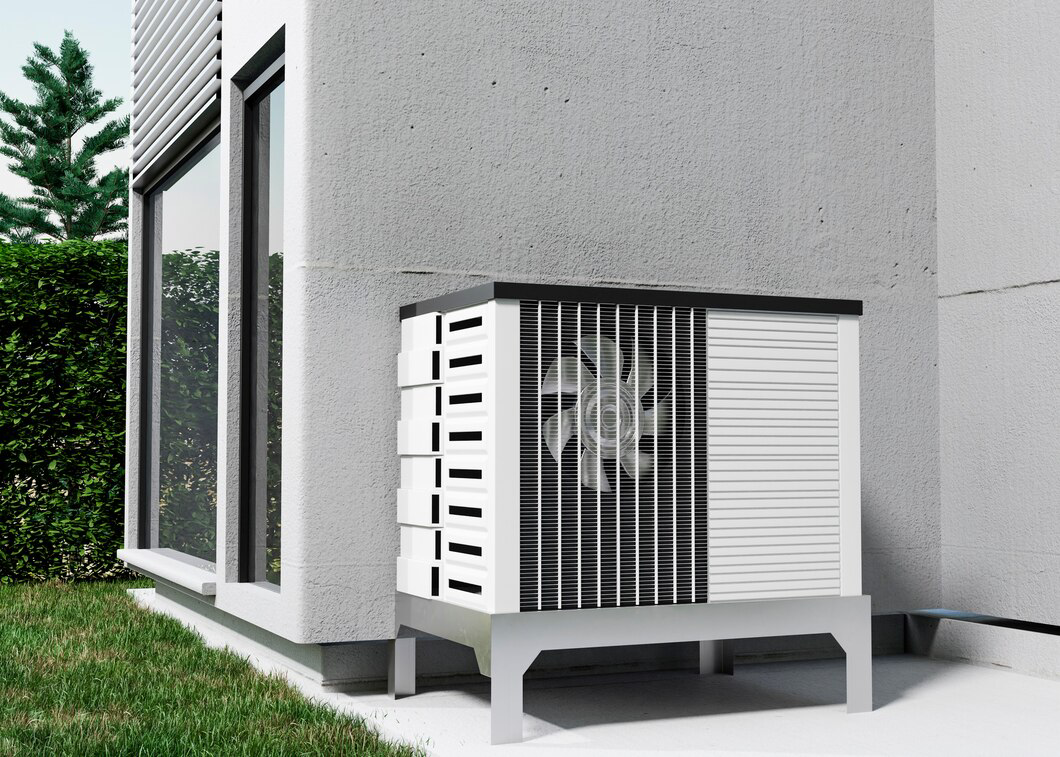
How Can I Calculate the Cost of Replacing an HVAC System?
To estimate the cost of replacing an HVAC system, you'll need to factor in several key elements:
- Local Climate and System Type: The climate in your area plays a major role in determining the type of system (such as central air, ductless, or heat pump) that will work best, which directly influences installation costs.
- Size of the HVAC Unit: The size of the HVAC system you need depends on the climate and the square footage of your home, ensuring the system is properly sized for efficiency.
- Efficiency Ratings: Units with higher efficiency ratings (SEER for cooling, AFUE for heating) generally come with a higher initial price but can save you money on energy bills over time.
- Ductwork and Modifications: If your installation requires changes to ductwork or electrical systems, it may increase labor costs.
- Location and Labor Rates: Installation costs can vary based on your location, as labor rates, cost of living, and local building codes can all affect the final price.
- Additional Features and Upgrades: Optional features like smart thermostats, zoning systems, or air quality improvements will add to the overall cost.
You can use our HVAC replacement cost calculator to get a more accurate estimate based on these factors.
Frequently Asked Questions
How do I know if I need to replace my HVAC system? +
Are there ways to improve indoor air quality with my HVAC system? +
What size HVAC system does my home need? +
How can I lower my energy bills with HVAC? +
What’s the best temperature to set my thermostat? +
How to Choose the Right HVAC Contractor
When hiring an HVAC contractor for a replacement, consider the following key factors:
- Get Multiple Quotes: Don’t settle for the first estimate you receive. Request quotes from several contractors to compare pricing and services. Review the details of each quote, considering the various factors involved before making your decision.
- Compare Quotes Thoroughly: Ensure that all quotes are for the same scope of work. This includes equipment, labor, permits, and any additional fees, so you can make a fair comparison.
- Check the Contractor’s Credentials: Inquire about the contractor’s experience and ask for references you can contact. Use our list of questions to properly vet potential contractors during your interview.
- Ensure the Contractor is Licensed and Insured: Verify that the contractor holds the necessary licenses and insurance in your state. This protects you in case of any issues with the installation.
- Be Cautious of Large Upfront Payments: A trustworthy contractor will not ask for a large down payment before starting work. Be cautious if a contractor requests a significant amount upfront.
- Inquire About Warranties: Make sure the contractor provides a warranty for both the installation and the equipment they’re using. This ensures that you’re covered in case of future issues.
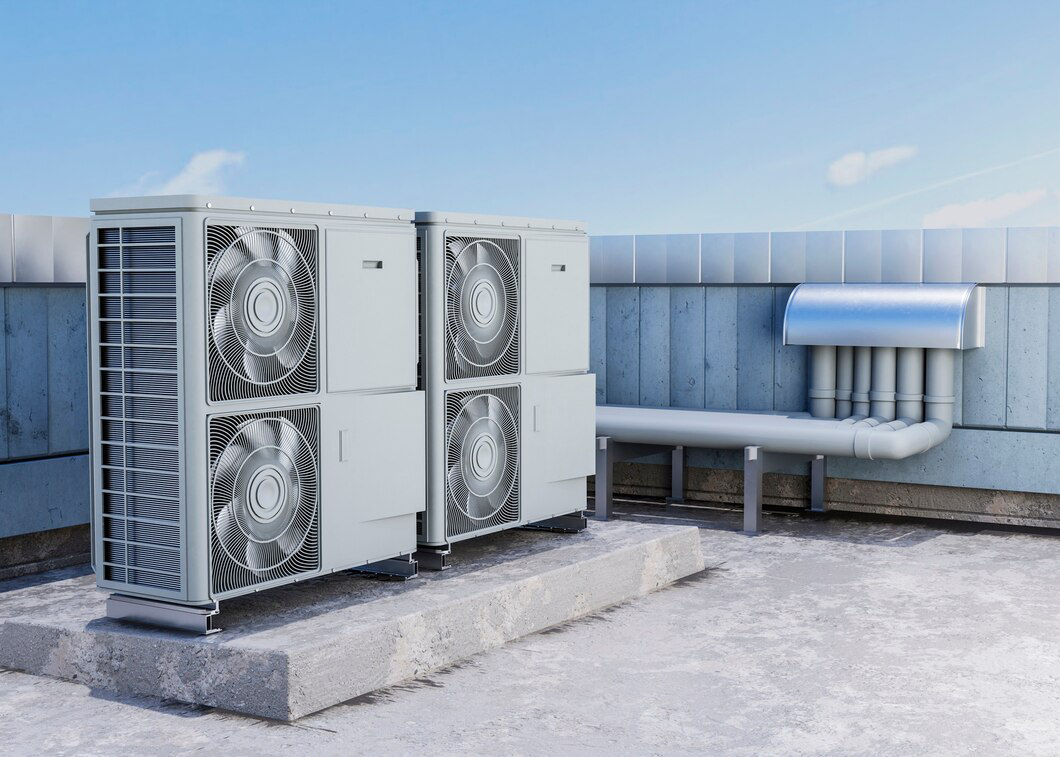
Ready to Get Started? Contact Our HVAC Experts Today!
Don’t wait to experience the comfort and efficiency your home deserves. Our team of skilled HVAC professionals is here to help you find the perfect system, handle installations, and provide expert maintenance.
Reach out now for a free quote or to schedule a consultation. We’re here to guide you every step of the way, ensuring your home stays comfortable year-round!
Frequently Asked Questions
What Are Some Red Flags to Watch for When Choosing an HVAC Contractor? +
1. Vague Quotes: Make sure the quote is clear and includes all aspects of the job, such as labor, equipment, permits, and any additional fees.
2. Large Upfront Payments: Be cautious of contractors who demand a significant down payment or ask for the full payment before completing the work.
3. Negative Reviews: Look up online reviews and check for any negative feedback or unresolved complaints about the contractor's work.
4. Poor Communication: If the contractor is hard to get in touch with or unresponsive, it may indicate unprofessionalism.
5. Unfamiliarity with Local Codes: Ensure the contractor is well-versed in local building codes and regulations to avoid potential issues with the installation.
What Should I Do After My HVAC System is Replaced? +
1. Monitor System Performance: Pay close attention to how your new system performs in the first few weeks. Listen for any strange sounds, check for consistent heating or cooling, and ensure it’s working efficiently.
2. Allow for Fine-Tuning: Your system might need small adjustments during its initial use to achieve optimal performance.
3. Review Warranty Details: Take time to read the warranty documentation for your HVAC system and keep important records, such as receipts and purchase information.
4. Schedule Regular Maintenance: Follow the manufacturer's recommendations for routine maintenance to keep your system running smoothly. Replace Air Filters Regularly: To maintain good airflow and air quality, change your air filters at the recommended intervals.
4. Implement Preventative Measures: Prevent common issues by keeping the outdoor unit free from debris and avoiding overloading the system.






